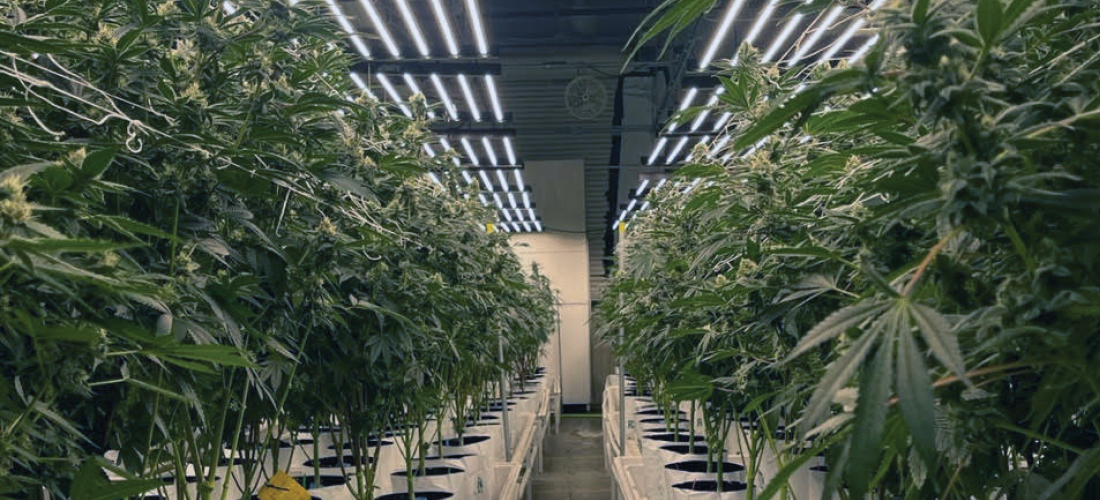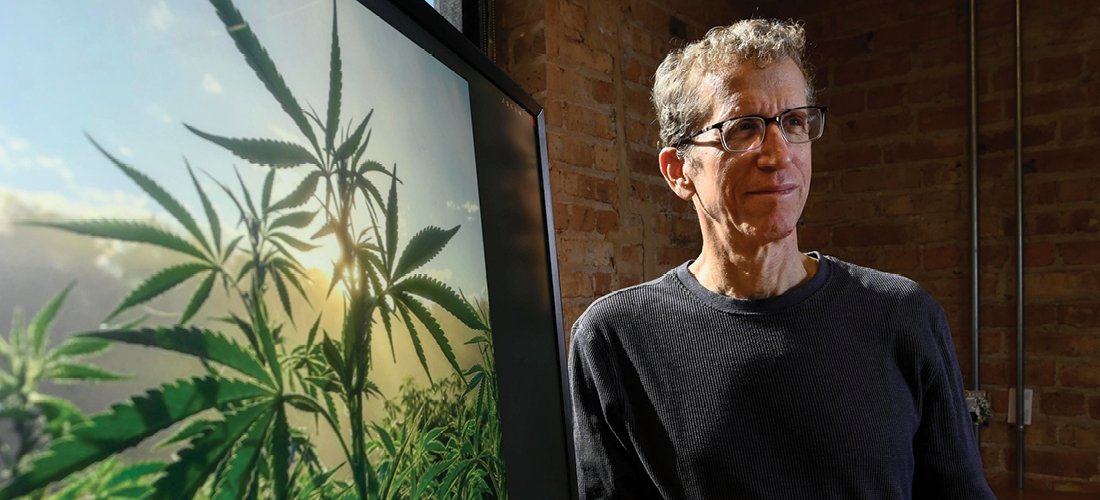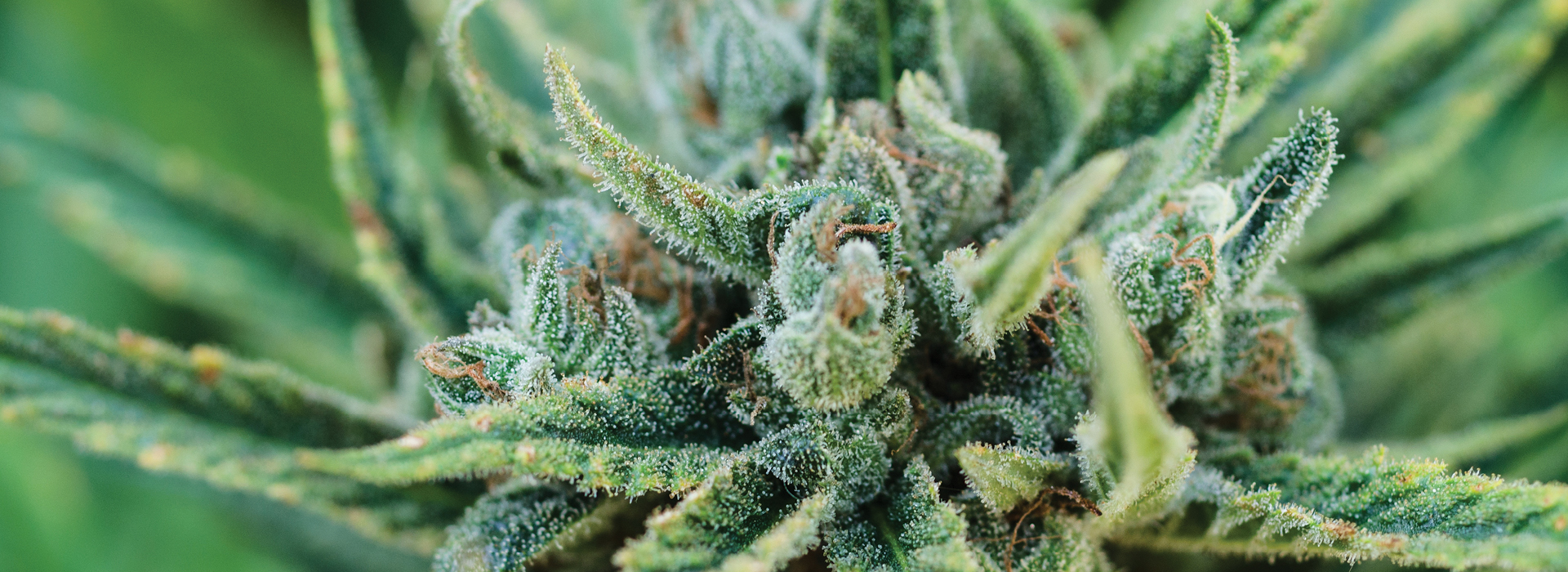
Jon Loevy’s phone was ringing often in 2014, and it wasn’t just new clients. Every week, he was getting calls from people wanting to open a cannabis dispensary in his law firm’s building in the red-hot West Loop neighborhood of Chicago.
Loevy, 54, a civil rights attorney, already had enjoyed enormous success winning tough cases and multimillion-dollar verdicts and settlements for clients. Yet he’d been mulling another challenge. He had the resources, and he had the conviction to create another enterprise—using the same model of a driven, highly educated and skilled workforce that would accomplish something few had. His plan? To open Key, a charter school to educate disadvantaged children in low-income neighborhoods. But Loevy says the Chicago Board of Education wasn’t approving new schools.
Loevy thought about the cannabis dispensary callers. He talked to his old high school classmate, debate team member and partner with whom he runs the law firm, Michael Kanovitz. The light bulb went on. They decided to put up the money to start their own cannabis business, Justice Grown.
Today, the renamed Justice Cannabis Co. is one of the biggest of the little guys in the rough-and-tumble, fast-paced and legally treacherous world of marijuana growing and selling.

Around the office, Loevy calls it “the pot farm.” He makes it sound like a hobby, a backyard plot of land carved into a field of corn and soybeans. It sounds quaint.
“Mike and I decided to fund our own factory in downstate Illinois and just see how it would go,” Loevy says. “You know, we weren’t trying to take over the world. We built a very small factory, and we just proceeded to try to lose as little money as possible.”
Now it’s anything but quaint.
Don’t let the baseball cap, loose gray hoodie, casual manner and chair-slouching mislead you. Jon Loevy is a master practitioner in the courtroom. He built a large law practice from nothing, starting at his kitchen table with the help of his wife, Danielle, in 1997. He is one of the country’s most successful civil rights attorneys, having won—by his own count—“more multimillion-dollar jury verdicts over the past decade than any other civil rights firm in the country.” Loevy estimates that the firm, since its launch, has won $500 million in verdicts and settlements for clients, not including a mammoth $228 million judgment in October in a privacy class action.
He has mined a rich vein in Chicago, where the city’s police department has long harbored more than its share of bad apples, winning justice for clients who were beaten or tortured by Chicago police and sent to prison on wrongful convictions.
Loevy & Loevy (LOW’-vee) and its team of 50 attorneys has been on the leading edge of civil rights law at a time when Americans have become increasingly aware of police misconduct through videos and through social movements such as Black Lives Matter. Attorneys for the firm also have handled litigation relating to Guantanamo Bay detainees and whistleblowers claiming they were tortured by U.S. officials in Iraq; and they went to Chicago O’Hare International Airport to offer legal help after then-President Donald Trump suspended refugee admissions. And a successful Freedom of Information Act suit they filed forced the city of Chicago to release a police video of the shooting of Laquan McDonald. That video was a crucial piece of evidence in a case that resulted in the first Chicago police officer being convicted of murder for an on-duty shooting in nearly 50 years.
Loevy was still hungry when he and Kanovitz put up their own cash eight years ago to start the pot farm. To get their start, they created a limited liability company and took over a small indoor growing operation in tiny Edgewood, Illinois, about 225 miles south of Chicago, producing about 150 pounds of marijuana a month.

Today, Justice Cannabis is a national player in one of the country’s fastest-growing and perhaps most interesting business sectors. Legal in some states now, it is also a business that is illegal under federal law.
Justice Cannabis has 12 dispensaries in five states and pot farms in three states. Loevy expects revenues of $100 million in 2022, and triple or quadruple that in 2023. Justice Cannabis has more licenses for future retail and growing facilities, and it has helped many other companies obtain licenses in the hopes of selling its pot farm crop to them.
Loevy is not much of a pot devotee—he says he hasn’t partaken for many years—but he always has been something of a gambler. He says he inherited that from his mother, Barbette Loevy—who Loevy says was one of the first female options traders in Chicago—and her poker-playing relatives in Kentucky. Without the risk-taker’s gene, he never would have been taken seriously in his law practice, where he became known for his willingness to go to trial with difficult cases and his ability to win them.
In the early days, no one bothered to return his calls. He didn’t have any clients and didn’t know how to litigate, so he started contracting with other firms to take small personal injury cases to trial. If you don’t go to trial and win, he says, no one will settle. But if you lose, you’ve spent a lot of time and money to come up empty. It’s a “bet on yourself” tactic that has paid off for the man who says he once had a streak of 23 consecutive trial wins.
Loevy’s first big win in 1999, a case that launched his career, was one that another lawyer brought him into. His client Joseph Regalado was awarded $28 million for a police beating that left him paralyzed. It was the largest civil rights award in the city’s history at the time. Loevy learned that civil rights litigation was a “good alignment with my values” and “an attractive business model” thanks to a federal law that states attorney fees can be awarded if plaintiffs prove they were deprived of their constitutional rights.
Loevy has now pushed his chips in on Justice Cannabis. His motivation? To make money, to help people, to take on the big boys and to feed his own competitive fires. All of the above are in evicence as well as by his own account. The jury is still is still out on whether his all-in bet on a multistate cannabis business will hit.
Few law firms will likely make the leap into the cannabis business that Loevy has, but as new states legalize marijuana and the business goes mainstream, more attorneys are taking on cannabis-related issues in their practices.
As of early February, 37 states, three territories and the District of Columbia permitted the medical use of cannabis products. And as of November, 21 states, two territories and D.C. had approved cannabis for adult nonmedical use.
"It's still the wild, wild west." —Lisa Dickinson, chair of the ABA Tort Trial and Insurance Practice Section's Cannabis Law and Policy Committee
The cannabis industry generated $25 billion in revenues from legal sales in 2021 and employs more than 400,000 people nationwide. It was expected to reach $32 billion in annual sales in 2022 and could exceed $50 billion by 2030.
It can be a lucrative and fascinating area of practice, according to attorneys such as William Bogot of Fox Rothschild, who left the Illinois Gaming Board to take on cannabis work.
It also can be frightening, says Lisa Dickinson of the Dickinson Law Firm in Spokane, Washington, who is chair of the ABA Tort Trial and Insurance Practice Section’s Cannabis Law and Policy Committee. “It’s still the wild, wild west,” she says.
The federal Controlled Substances Act prohibits the production, distribution, sale, use or possession of cannabis—which is classified alongside heroin and LSD as a Schedule I drug with a high likelihood of addiction and no safe dose. The federal statute provides no exception for medical or other uses authorized or regulated by state law. The penalties for some offenses are severe. The rapid bifurcation of state and federal law has woven deep contradictions into the legal system and American society, and it has created a thorny dilemma for cannabis businesses and the attorneys they need to help them.
For attorneys, there are two issues that have a chilling effect on their participation: The first is whether by representing a business that is breaking federal law they are violating the ethics of the profession, which could cost them their license to practice; the second is they could be charged with engaging in criminal activity, resulting in fines and prison.
In one case, for example, a San Diego attorney was charged by the district attorney in 2017 with multiple felonies in connection with her representation of a marijuana products manufacturer. The felony charges were dropped in 2018, but this apparently singular case was a reminder of the trapdoors.
The conundrum for those caught in the regulatory web around marijuana—and for the businesses trying to legally ply their wares—is the unpredictable and ad hoc nature of federal enforcement. As the movement to legalize medical marijuana in the early 2000s gained steam, followed by the later push for its recreational use, President Barack Obama’s administration tried to head off a train wreck of contradictory prosecutions. In October 2009, the Department of Justice sent a memo to federal prosecutors encouraging them not to prosecute people who distribute cannabis for medical purposes in accordance with state law. In 2013, after Colorado and Washington became the first two states to legalize recreational marijuana, the DOJ went further with the so-called Cole memorandum, stating that it would defer “the right to challenge their legalization laws at this time” in states that strictly regulated marijuana.
But in a sign of just how tenuous the balance is, the rug was pulled out in 2018 when Trump’s Attorney General Jeff Sessions tore up the Cole memo and decreed that the federal marijuana laws would be enforced. The script was flipped again after Sessions resigned, and the DOJ went back to benign neglect—where it stands today under President Joe Biden. This series of events has not exactly inspired confidence in owners, operators and their attorneys, who still do business with a high degree of uncertainty and know there is a chance that a future DOJ will change its priorities again.

The hopes of resolving these contradictions are dim. Bills to decriminalize marijuana and allow banks to service cannabis businesses have repeatedly passed the Democratic-majority House of Representatives, but not the 50-50 Senate. (Complete Election Day results determining party majorities for the next Congress were not available at press time.)
Despite the indecision, federal prosecutions are slowing. In 2021, more than 98% of all federal drug charges resulted in guilty pleas without trial. The number of federal prosecutions of marijuana trafficking has plummeted over the past decade, falling under 1,000 last year. Fewer than a hundred people were sentenced in 2021 to the 10-year mandatory minimum.Lending a handHelping what he calls victims of the war on drugs, those who were convicted of marijuana offenses and others who were “justice-involved” is a part of Loevy’s interest in cannabis. He says he and others have donated money for application fees; helped write and give application trainings for free; and even sued Illinois to change its process of awarding “social equity” licenses to improve some applicants’ chances of winning them.
Under the Illinois program, one of the first of its kind in the country—designed to “remedy the harms resulting from the disproportionate enforcement of cannabis-related laws”—at least 51% of a license-holder’s ownership had to be social equity applicants (generally defined as people with past low-level marijuana charges or those from areas harmed by the war on drugs, marked by poverty or high arrest rates for marijuana). The program’s guidelines have been contentious and highly contested by the many parties seeking what are considered to be lucrative licenses to dispense or grow marijuana.

In Illinois, Loevy felt he had an advantage—even though he was getting out of the gate late. The firm became skilled at writing applications and navigating the complicated process. He also could draw on 25 years of relationships with people who might qualify as social equity applicants and needed help getting into the cannabis business. So he looked for suitable candidates and then paired them with “a capitalist,” as he put it, or someone who had or could raise the money needed to start a new business. After a series of delays lasting about two years to resolve court and other challenges, Illinois awarded 193 new such dispensary and 48 growing licenses in 2022.
While Justice Cannabis’ own application for a dispensary did not score high enough on the social equity scale to be included in the lottery, Loevy says more than a dozen of the applicants his firm assisted were approved, and some even won multiple licenses. One key was scoring an extra five points and a perfect score for having a veteran owner on board.
Many of Loevy’s capitalist partners—or minority share owners—are colleagues and Loevy family members. (The state cannabis licensing agencies do not release ownership information, but the Illinois Secretary of State’s office maintains public data on ownership of the company entities, which are mostly limited liability companies.)
Debra Loevy, Jon’s sister and an attorney at the firm, is part-owner in an affiliated cannabis business, Green Star Equity, that won a dispensary license in Illinois. Another sister, Karen Horowitz, who doesn’t work for the law firm, is a partner in license-winning cannabis business Botavi Wellness, which netted a total of seven dispensary licenses in Illinois. The dispensary licenses are considered quite valuable; a recent purchase agreement put the total value of one license at $6 million.
Other friends and family members have won growing licenses, including Debra Loevy with Deblop Craft. Loevy partner Russell Ainsworth is part owner of Tynnsworth; and a relative of Kanovitz, Robert Kanovitz of Kentucky, also is part owner of a licensed craft grow company MarqKano.
"I've got some clients who are every bit as smart as me and my friends, and they don't have a chance because they were dealt a bad hand. I am using this as a means to an end." —Jon Loevy
All of those social equity craft growing licensees and two others have as their business address the Justice Cannabis licensed pot farm in Edgewood, Illinois, which has an expansion plan in place.
Loevy’s motivation, he says, always has been to uplift others and promote social justice.
“I grew up in a privileged background with really good schools and was given every opportunity,” Loevy says, talking about his motivations to start a charter school and now a cannabis business. “This was a big advantage. Yet I’ve got some clients who are every bit as smart as me and my friends, and they don’t have a chance because they were dealt a bad hand. I am using this as a means to an end.”
Social justice also is a big part of the marketing and branding pitch of Justice Cannabis. The company “does good to make you feel good,” its website promises.
Ashley Peterson, executive vice president at Justice Cannabis Co., said in an interview with professional association CannaBizIL that the company employs “those who have been incarcerated and work to bring those who have been disproportionately affected by the criminalization of cannabis into the industry.”
It is difficult to determine how well Justice Cannabis lives up to such pledges. Peterson did not respond to a request to provide the number of formerly incarcerated employees or to interview any of them. She did provide the example of one pre-pandemic expungement event at which Loevy & Loevy attorneys filled out paperwork for 60 people and also mentioned the licensing help provided by the firm.
Jon Loevy provided the name of one formerly incarcerated person he helped to bring into the cannabis business: Marvin Reeves.
Reeves, 63, was exonerated after 20 years in prison for a murder conviction in which he was implicated by another man who confessed to committing the crime with Reeves. That man had been tortured by a detective who worked in a Chicago police unit notorious for abusive tactics. Reeves, sentenced to life, also was beaten by police. Loevy won Reeves two settlements totaling more than $6 million.
"When you understand business, you know anything can happen. My thing is, anything happens, I can walk away with a smile." —Marvin Reeves
Reeves is now in the cannabis business, although he wasn’t clear on all of the details, saying he trusts Loevy to look out for him. Loevy explained to the ABA Journal that Reeves loaned money to Justice Cannabis and earns interest on it. Reeves also is a partner in a separate cannabis business that received six dispensary licenses, an LLC called KAP-JG. Loevy says he has no ownership interest in KAP-JG (“JG” as in “Justice Grown”) or in any of the other companies with social equity licenses.
Reeves, although he is “rich” in Loevy’s telling, lives in Chicago’s Englewood neighborhood, which is in a ZIP code that qualifies as a social equity zone. Reeves was given a 5% share of KAP-JG, which lists only one “manager” or owner: Edie M. Moore, a Black woman and the former executive director of Chicago NORML, a chapter of the national organization that supports legalizing marijuana.
About his loan and equity position, Reeves says Loevy told him: “‘Look, this is a good opportunity for you.’ When you understand business, you know anything can happen. My thing is, anything happens, I can walk away with a smile.”
After his release in 2009, Reeves struggled to adapt to life outside. Today, he doesn’t have any financial worries. He’s a man who doesn’t want to overspend on frivolity and tries to live his life by many of the aphorisms he offers to those he meets, such as: “You didn’t make this money, so chances are you are not going to know how to keep it.”
Loevy says Reeves is the only exoneree he knows who has more money now than he did the day he received his settlements. Reeves credits Loevy.
“Jon don’t have a bad bone in his body,” Reeves says. “He loves everybody. I don’t know where I would be if it wasn’t for Jon.”
"Any financial benefit [Jon Loevy] gains he puts back into solving injustice and helps the people he cares about. I'm all for it." —Joshua Tepfer, attorney with Loevy & Loevy's Exoneration Project
A Loevy colleague seconds Reeves’ endorsement. Joshua Tepfer, 47, who spends long days working on wrongful conviction cases, is an attorney at the Exoneration Project, which is housed at and completely funded by Loevy & Loevy. The project is a clinic run in conjunction with the University of Chicago Law School that provides millions of dollars per year in free legal representation. Tepfer previously worked at Northwestern’s Center for Wrongful Convictions, the exoneration work of which helped end the death penalty in Illinois.
Tepfer says he doesn’t know much about the pot farm, but he knows his boss.
“I trust Jon Loevy a ton, I really mean it,” Tepfer says. “He’s a lot smarter than I am. He is a brilliant visionary. Any financial benefit he gains he puts back into solving injustice and helps the people he cares about. I’m all for it. He’s put in tons of resources. He’s put his money where his mouth is.”
The ABA has helped pave the way for attorneys like Loevy, Bogot and Dickinson to practice their craft on behalf of cannabis businesses. In the beginning, big firms in particular wouldn’t touch the work—the consequences were too great, and their insurance companies wouldn’t cover them.
After Washington legalized adult use in late 2012, Dickinson began getting calls to help draft business documents for cannabis startups, but she couldn’t do it. That means potential clients had poor or no legal representation and made a lot of mistakes, some of which still haunt them, she says.
In 2014, the Washington State Bar Association worked to have the state supreme court add a comment to the professional conduct rules to make cannabis work ethical. A few years later, the court formally amended the rule. Dickinson says she has represented more than 50 cannabis-related businesses since 2014.
"The ABA has been very helpful in helping to protect attorneys who are trying to practice lawfully." —Lisa Dickinson
More needs to be done, practitioners say. In 2020, the ABA House of Delegates adopted two resolutions urging federal legislation to shield lawyers and banks from criminal liability for providing services like Dickinson’s.
“The ABA has been very helpful in helping to protect attorneys who are trying to practice lawfully,” she says.
Bogot says he and his former firm were the first to formally ask the Illinois State Bar Association to issue an advisory opinion on cannabis—which it did in 2014—and to ask the Illinois Supreme Court to amend its rules of professional conduct. Before the amended rule went into effect in 2016, attorneys were prohibited from assisting any person or business engaged in illegal activity.
That seems like a long time ago, back when people looked at Bogot kind of funny when he mentioned weed.
“Personally, I felt OK about it. There was a stigma back in the day. At parties, family—they would look at me like I was representing some stoner. It’s cutting-edge, fun stuff. It’s the birth of an industry. There’s an excitement around it.”
Lawyers selling pot? Good for Loevy, Bogot says.
“That law firm is very well-respected. I know they do good work. It shouldn’t be a problem.”
He adds: “I’m just jealous.”
Writing applications and winning licenses was the easy part for Loevy and Kanowitz. Now the two have to run a business. That’s where Loevy’s “all-star,” Darin Carpenter, comes in.
Carpenter, 43, was drawn to the industry after serving four years as an Army combat paramedic in Iraq and Afghanistan. He learned about the value of cannabis for injured veterans. In 2019, Carpenter was consulting with another company that was interested in buying a stake in Justice Cannabis. Instead, Loevy persuaded Carpenter to quit and come work for him—and become CEO.
“The quality of the people you meet in the space aren’t always what you hope to meet,” Carpenter says.“The cannabis industry is a dog-eat-dog world. There are a lot of bad operators out there. I thought he was a good person. I like working with good people.”
He praises Loevy’s patience and willingness to lose money. “He’s unwavering. He hasn’t gotten too upset. The relationship works extremely well.”
Justice Cannabis had about 40 employees when Carpenter started. Today, there are 400, and next year there will be double that, he predicts, as the company opens the new dispensaries and farms that it holds licenses for.
Justice Cannabis is now in a “hypergrowth stage” while operating in a legal minefield. It has a $75 million high-interest credit line from a marijuana real estate investment firm, which it is using to build large modern pot farms.
"It's cutting-edge, fun stuff. It's the birth of an industry." —William Bogot of Fox Rotchschild
User demand is strong and still growing, especially in states where cannabis is newly legalized. But the list of challenges is long: raising capital from uneasy banks; rising interest rates and inflation; a slowing economy, product oversupply and falling “flower” prices; the unavailability of standard expense write-offs on federal taxes; and elections for Congress and the president that could turn their business prospects upside down.
One measure of the regulatory concern still out there is that the stock prices of publicly traded cannabis companies plummeted 80% in the 20 months ending in late October—mostly because of the dwindling hopes of federal legalization and the failure of Congress to remove banking restrictions.
Some of the Justice Cannabis operations are profitable, Carpenter says, and some are not. Profitability is around the corner in 2023, he and Loevy feel, but they have been saying that for a few years now.
The business gets Loevy’s competitive juices flowing, and he’s excited about the David-and-Goliath struggle.
“Coming from the back of the pack—that’s motivating” he says. “We’d like to, frankly, pass some of these guys. We’re really just trying to get to the moon. We want to win.”
He figures he and his partners turned a two-person, kitchen-table law firm into a civil rights juggernaut winning millions in high-profile verdicts, so why can’t he build a cannabis business that makes money, takes on the big boys and does some good? Who knows, he might even make enough money to open that award-winning charter school he has always dreamed about.
“It’s fun,” Loevy says. “It’s really fun.”
This story was originally published in the December 2022-January 2023 issue of the ABA Journal under the headline: “Growth Strategy: Lawyers are lighting up the budding cannabis industry.”